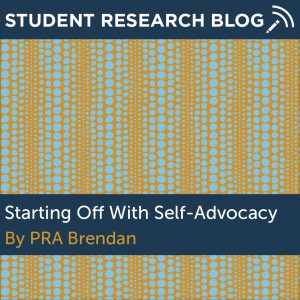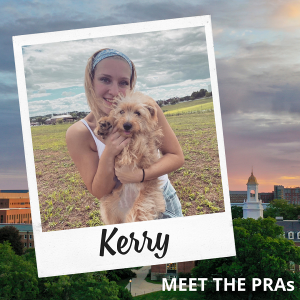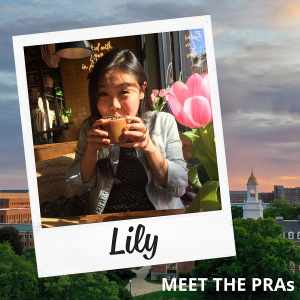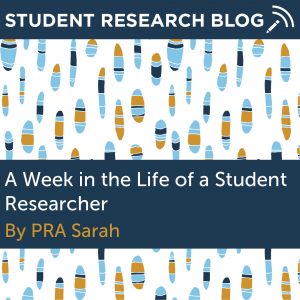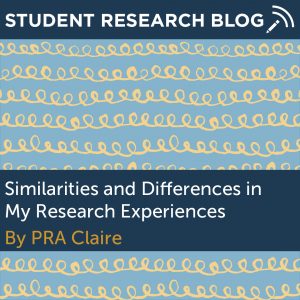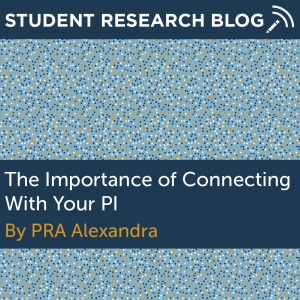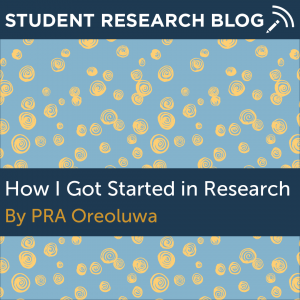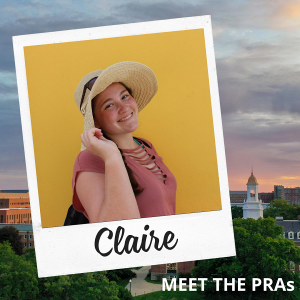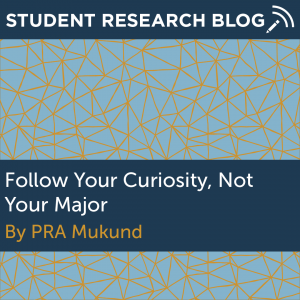Meet Brendan Hogan ’21, an OUR Peer Research Ambassador (PRA) majoring in Political Science, Psychological Sciences, and Philosophy.
 What is the focus of your research?
What is the focus of your research?
In my Freshman and Sophomore years, I participated in research that revolved around the influence of intellectual humility upon public discourse. Essentially, when someone engages in a conversation with another person over a political issue in today’s political climate, the conversation tends to go into one of two directions. When a conversation begins, it can either end with both parties either agreeing or both parties disagreeing. When both parties disagree over a topic, a hostile conversation usually is created where both sides become angry and attempt to force their opinion on the other. Thus, the researchers I worked with were trying to create a third outcome where parties instead agreed to disagree. With this, an attempt was made to have both sides acknowledge the facts of the other side and ultimately end the conversation with a humble realization that we are all trying to find a solution. Thus, the overall goals were to promote this idea that we are all attempting to solve the issues of today and need to work together as a society to compromise.
My Junior year, I worked on a project that planned to examine the role of race and the far-right in the making of the US-led postwar ‘liberal international order’. In particular, through theoretically-informed empirical analysis, the manuscript that I helped to edit worked to explain how the far-right contributed to the crystallization of a distinct racialized anticommunist politics at home crucial to US power-projection abroad.
In Spring 2020, I was awarded a summer UConn IDEA Grant to study the vice of arrogance and psychological group biases within white nationalist leaders’ online rhetoric. To carry out this project, I conducted a qualitative content analysis of various blogs written by prominent white nationalist leaders. Following the analysis, I will use the empirical data collected to inform and guide my UConn Political Science and Philosophy Dual Honors Thesis during the 2020-2021 academic year.
Why did you get involved in research?
When I was offered my initial opportunity to carry out research, I saw it as a chance to become exposed to a real life research project. From that opportunity, I hoped that I would be able to take what I learned and then carry out my own project. While the research experiment was an important aspect of the project, it was also pertinent that I became accustomed to the behind-the-scenes management and organization of a project.
In addition, I chose all these research opportunities as I felt a desire to understand these areas of political science and attempt to figure out how researchers are trying to solve the political issues of today. Without this desire to take part in these specific projects, I would not have gotten involved as the work and research may not have been enjoyable.
What advice would you give to incoming first-year students?
When you are jumping into college, it is easy to sign up for and commit to many extracurricular activities. If I could give you any advice, it would be to try to find a few things that you love the most and stay committed to those activities throughout your undergraduate years. Work to improve those clubs, positions, and opportunities, but also look to find a balance between your own personal life and college career. The next few years will be some of the most enjoyable years of your life, so don’t forget to take the time to not only build your resume, but to grow as an individual and find yourself.
Describe the impact your research experience has had on you.
After I finished my research around intellectual humility, I found that I have begun to approach arguments from the perspectives of both sides. This concept has really shed light on the issue of political polarization for me and has shown me that it is important to work towards compromises. With this real world application of research, this experience has left a lasting impact on my outlook in my everyday interactions with others.
What are your plans after graduation? How has involvement in research influenced your plans and prepared you for the future?
After I graduate, I plan to go to law school and eventually practice law with a concentration in constitutional law or civil rights and liberties. From my involvement in research, I have become inspired to try to see both sides in debates and conversations so that the facts of the argument can first be examined. From there, it has shown to me that no one side is necessarily always right, but rather both sides should try to meet in the middle and overcome any divides. Without people attempting to reach a middle ground, our polarized political climate will only worsen in the future. Thus, as my previous research was applicable to my area of studies, I have found that it has allowed me to grow as a political scientist, a potential lawyer, and even as an individual. It has motivated me to pursue a legal career in which I can promote positive, public discourse and intellectual humility.
Click here for more information on Brendan and other OUR Peer Research Ambassadors.
